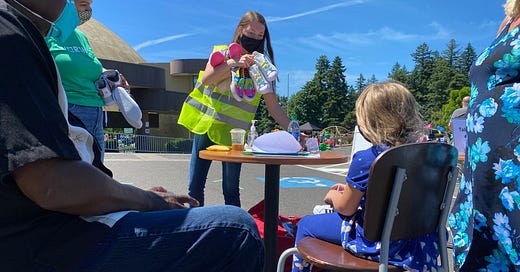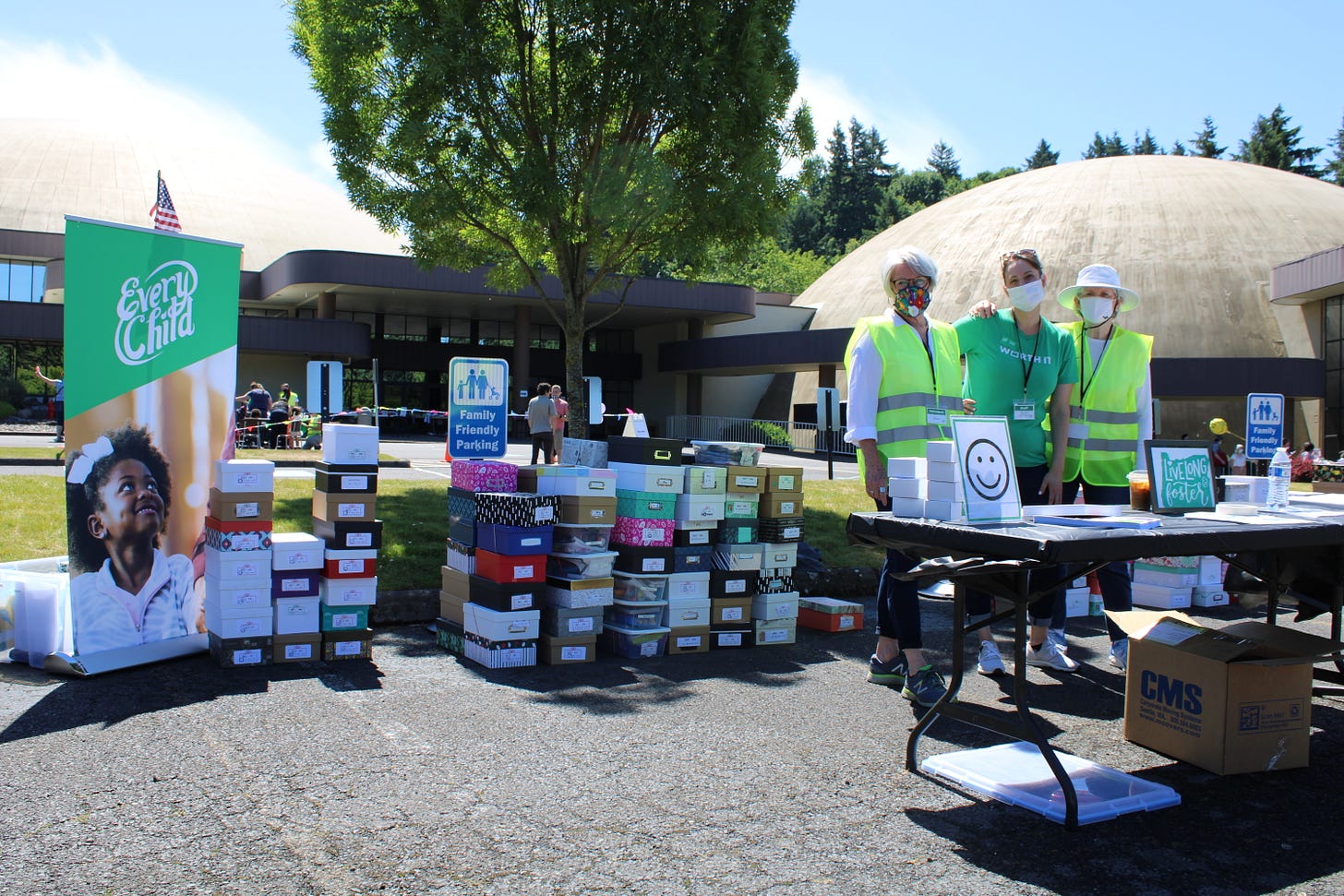Stop pointing fingers. Stronger communities are required for Oregon to thrive.
To suggest the State is responsible for the neighborhood is a false paradigm that will never rebuild healthy community life.
Ben Sand is the CEO of The Contingent and the Author of A Kids Book About White Privilege.
In the mid-20th Century, when the family unit began to break down, Oregon communities struggled to respond to the increasingly complex needs of the kids and families in the neighborhood. In 1971, the legislature voted to build the Oregon Department of Human Services (ODHS). Between 1971 and today, ODHS has grown to become the largest government agency in Oregon. Serving one in four Oregonians, we have asked ODHS to design a system of family support that leans heavily on government services.
That’s an ask that the State will never fulfill. Until Oregon champions its communities as the engines for problem solving, ODHS will be flying like a plane with one engine. Community engagement and collaboration can fuel efforts to realize the lofty aims held by the ODHS and others.
For far too long, community members have taken shots at ODHS when problems—whether they be episodic or systemic—arise. It grieves me when we assume the agency is beleaguered; it creates a misunderstanding of our collective challenge. As ODHS has grown, the community has further abdicated its responsibility for neighborhood flourishing.
It is a miscalculation if we expect our tax dollars to both fund the “social safety net” and hire enough state employees to do the relational, culturally responsive, neighborhood work required for Oregonians to flourish. We ask too much. Fariborz Pakseresht, Director of ODHS, is a very good friend and one of the best leaders I know. We both agree the State of Oregon is only as strong as the community that comes alongside it.
To suggest the State is responsible for the neighborhood is a false paradigm that will never rebuild healthy community life.
In 2013, The Contingent launched a statewide collective impact initiative called Every Child Oregon (www.everychildoregon.org). Every Child exists to uplift children and families impacted by foster care in Oregon. Through a radical commitment to empowering community volunteers, recruiting new foster parents (across all 36 counties), and supporting biological, foster, and kinship families, Every Child has mobilized tens of thousands of community members who are stepping into a relationship with ODHS to build collective solutions for kids and families.
This is the Oregon Way.
Yet far too much of our public discussion still points fingers. The wild truth about Oregon is that our libertarian bent is found within BOTH the left and the right. The polemic rhetoric echoing from every corner of the state is rooted in a longing for local solutions, but I fear the way we engage one another is eroding hope for a robust expression of statewide community.
David Chavis and David MacMillan, in their article, Sense of Community: A Definition and Theory, suggest a sense of community is “a feeling that members have of belonging, a feeling that members matter to one another and to the group, and a shared faith that members' needs will be met through their commitment to be together." Many Oregonians, from Bend to Burns to Beaverton, don’t believe that such common commitment is possible; we’ve lost our ability to meaningfully engage with one another. But, community is possible if we serve one another together.
We don’t need a grand new vision for governance. We need a commitment to what David Brooks calls personalism, where all Oregonians are seen, which results in “schools where a child is not just a brain on a stick, hospitals where patients are not just bodies in beds, cities where cops see people (not “perps”), communities in which each person is seen as a rich interplay of multiple identities, and economic systems that allow people to realize their full dignity as makers and earners.”
Some may call for a return to an older era, where these were perceived to be Oregon attributes. But such longing betrays a tainted historiography and misses the fact that our present failings result from a dearth of moral imagination as we have not assumed responsibility to serve our neighbors together. The challenges facing a family in Pendleton should be the concern of a family in Portland.
It is not enough to assume the government will build the community we seek. A third way is needed beyond left and right, and that is going to require us to see the needs of the collective.
Oregon is one jurisdiction, and we are all in this together.





Absolutely! EVERYCHILD had begun the work we must all be part of. I am a
DHS CHILD welfare caseworker. Today at Fred's I ran into a dad and child whom I worked with previously. I knew he was back involved with child welfare. He has his child, but its not easy. We talked about his community, that no one can parent alone. May we each be someone's community, and not just to the neighbors most like us.